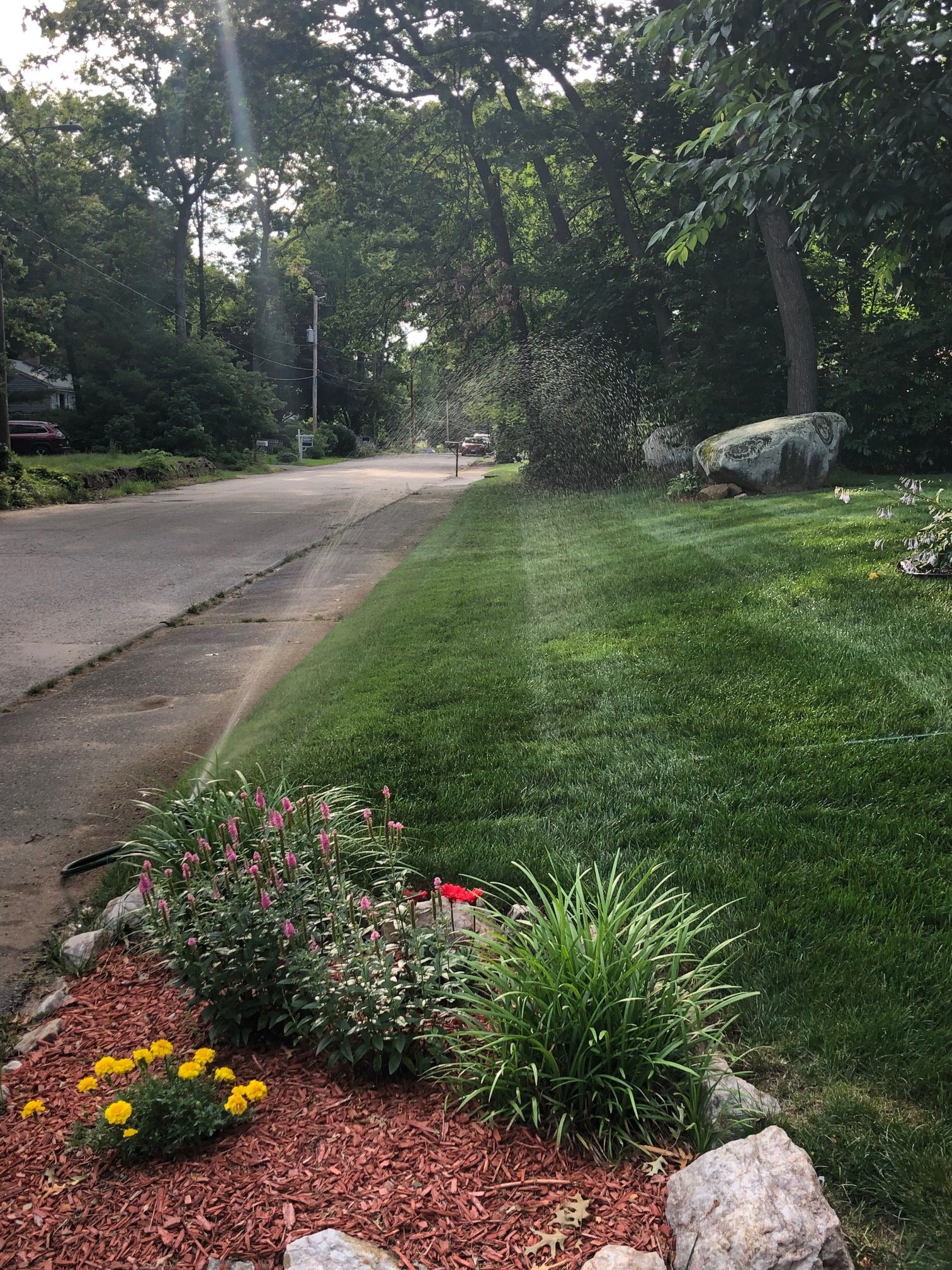In many parts of the world, water conservation is more important than ever. As droughts become more frequent and water resources become strained, residents are increasingly searching for methods to save water in order to maintain a healthy lawn without breaking the bank or overtaxing the environment. Luckily, there are a number of strategies that you can implement to achieve a lush healthy lawn while minimizing your water usage. Use these tips to save water.
Smart Irrigation System Practices:
Watering your lawn can tax the environment. However, you can adopt smart irrigation system practices by doing the following:
- Deep and Infrequent Watering: Ditch the daily light watering. Instead, provide one deep watering session per week that soaks the soil to a depth of roughly 6-8 inches. This irrigation practice encourages deeper root growth, which can make your lawn more drought-tolerant; it can also reduce the need for more frequent watering.
- Water Early in the Morning: Water your lawn early in the morning, ideally between 3-5 am. This minimizes water loss due to water evaporation, ensuring that the maximum amount of water penetrates your grass roots. Advanced irrigation systems can leverage local weather forecasts to adjust watering schedules, ensuring optimal hydration without water waste. Early morning watering is best for your lawn as watering; watering in the evening can increase the risk of fungal disease for your lawn.
- Manual Watering: Ditch the automatic irrigation system and opt for a hose and sprinkler. This allows you to focus water only on the grassy areas, avoiding sidewalks, driveways, and flower beds. You may need to adjust sprinklers if you still intend to you them so that they water plants and not pavement. If you’re trying to conserve more water, modern irrigation systems offer considerable benefits, including the ability to conduct irrigation audits and retrofit aging systems for enhanced water efficiency and water savings.
- Rain Barrels: Install a rain barrel to collect rainwater from your roof. This free water source can be used to water your lawn during dry periods, significantly reducing your reliance on municipal water supplies. Rain barrels help conserve precious water supplies.
- Mind the Weather: Be sure to read weather forecasts so you can avoid watetering your grass when before a rain. If you don’t have smart sprinklers, remember to turn them off on days with rain. This strategy will help you reduce energy usage too.
Below are images of my Imo Laza irrigation. It’s a great option to help you irrigate smartly.
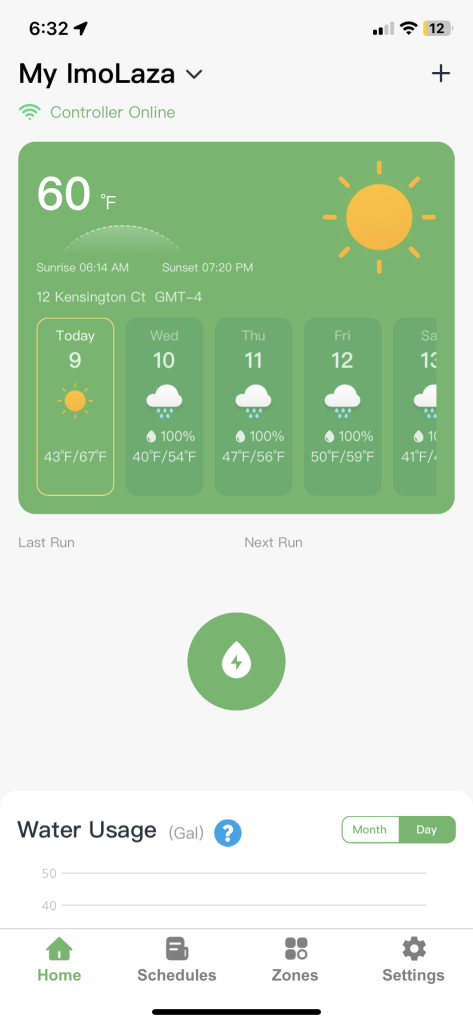

Lawn Care Strategies for Water Conservation and Retention:
Mow High: Raise your mower height to 3.5-4.0 inches. Taller grass blades shade the landscape soil, reducing moisture loss from evaporation and promoting a healthier root system.
Sharpen Mower Blades: Dull blades tear the grass, making it susceptible to disease and increasing water needs. Regularly sharpening your mower blades ensures clean cuts that heal faster, leading to a healthier lawn with less water dependence.
Aerate Your Lawn: Aeration of lawns involves punching small holes in the soil to improve drainage and allow air, water, and nutrients to more easily reach the grass roots. This practice promotes deeper root growth and overall lawn health, reducing the need for more frequent watering.
Mulch: Apply a layer of mulch around your trees, shrubs, and flower beds. Mulch helps you retain moisture in the soil, suppresses weed growth, and moderates soil temperature, which all contribute to a more water-efficient landscape. Additionally, applying water directly to the soil surface using efficient methods like drip irrigation can significantly conserve water by reducing evaporation, making it an excellent choice for irrigation.
Natural Products for Enhanced Water Retention and Deeper Roots
You can help protect the environment where you live by opting for natural products. Some options that I always include:
- Yucca Extract: This natural wetting agent contains saponins that improve the soil’s ability to absorb water and distribute it evenly throughout the plant root zone. This is particularly helpful for sandy soils that drain quickly.
- Humic Acids: Humic acids are organic matter components that improve soil structure and fertility. They also enhance the soil’s ability to retain moisture by increasing its cation exchange capacity (CEC), allowing it to hold onto more water and nutrients.
- Sea Kelp Extract: While not a direct water retainer, sea kelp extract provides nutrients and beneficial microbes that improve overall soil health. Healthy soil with a diverse microbial population generally retains moisture more effectively.
Remember: These natural products are most effective when used in conjunction with other water-conserving practices. Research is ongoing regarding their long-term impact, and they should not be considered a silver bullet solution.
Additional Organic and Synthetic Options:
- Corn Gluten Meal: This pre-emergent weed control product also acts as a slow-release nitrogen source. The protein in corn gluten meal helps improve soil structure, leading to improved water retention.
- Compost: Adding compost to your lawn is a fantastic way to increase organic matter content in the soil. This organic matter acts like a sponge, soaking up and holding onto water, promoting a more drought-resistant lawn. Keep a compost pile and add organic matter to it regularly.
- Hydrolyzed Corn Gluten: This water-soluble version of corn gluten meal can be applied post-emergence to control certain weeds. Like its dry counterpart, it also adds organic matter to the soil, improving water retention.
- Synthetic Copolymers: These absorbent acrylic polymers can be applied to the soil and act like tiny sponges, absorbing and holding onto many times their weight in water. They slowly release the water to the plant roots as needed, reducing the overall water requirement.
Important Considerations for Synthetic Products:
Before you use synthetic products in your yard, you should:
- Environmental Impact: Some synthetic products may decompose into microplastics, raising environmental concerns.
- Read and Follow the Label: Synthetic products often have specific application instructions and safety precautions that should be followed carefully to ensure their effectiveness and minimize potential harm.
By implementing these water-saving strategies and considering the various organic and synthetic products available, you can create a beautiful and healthy lawn while minimizing your environmental impact and water consumption. Remember, a healthy lawn with deep roots is more resilient to drought conditions, requiring less water to maintain its beauty. We should all strive for a greener future, one lush lawn and one well-conserved drop of water at a time.
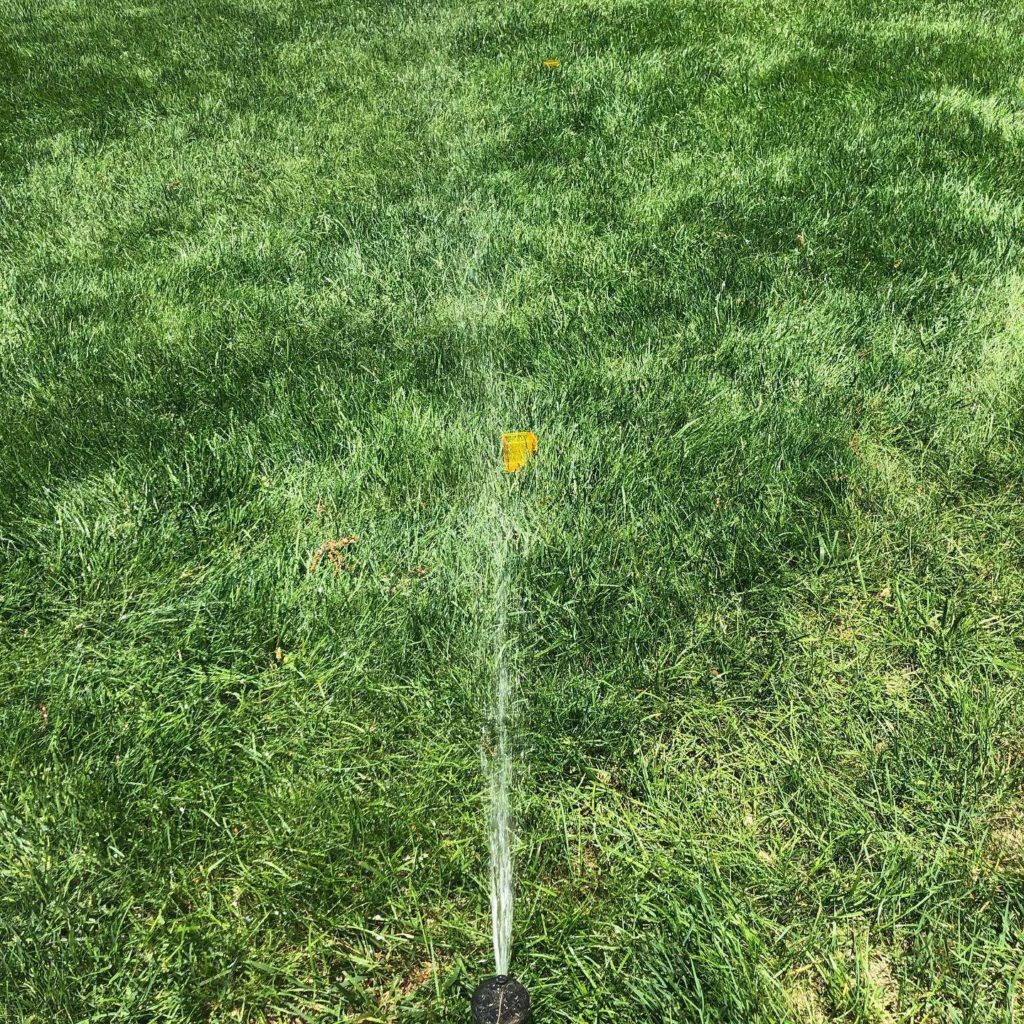
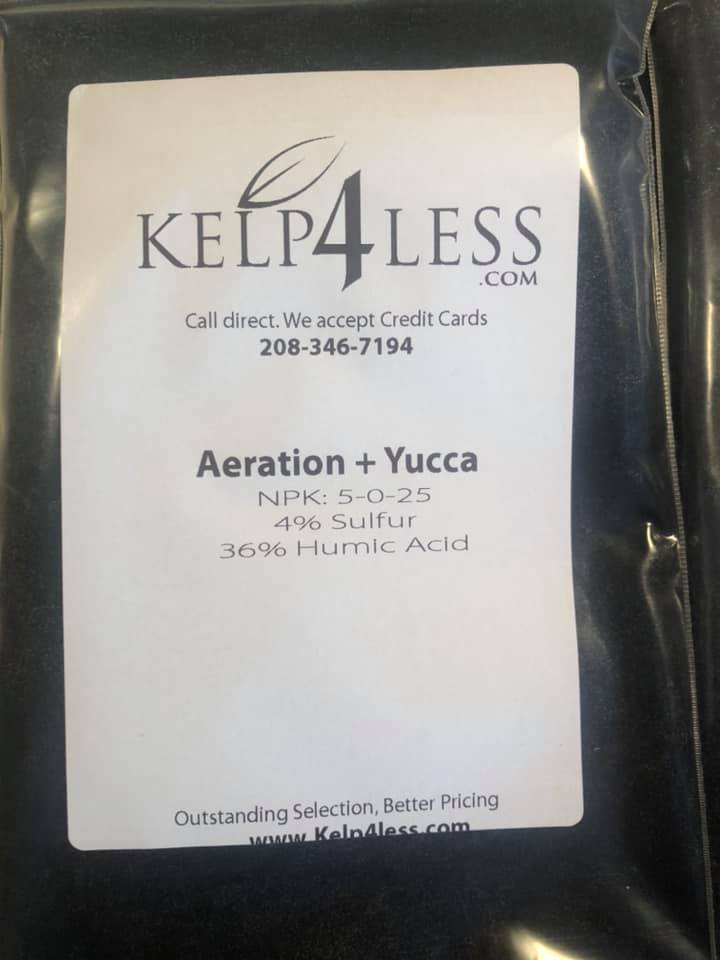
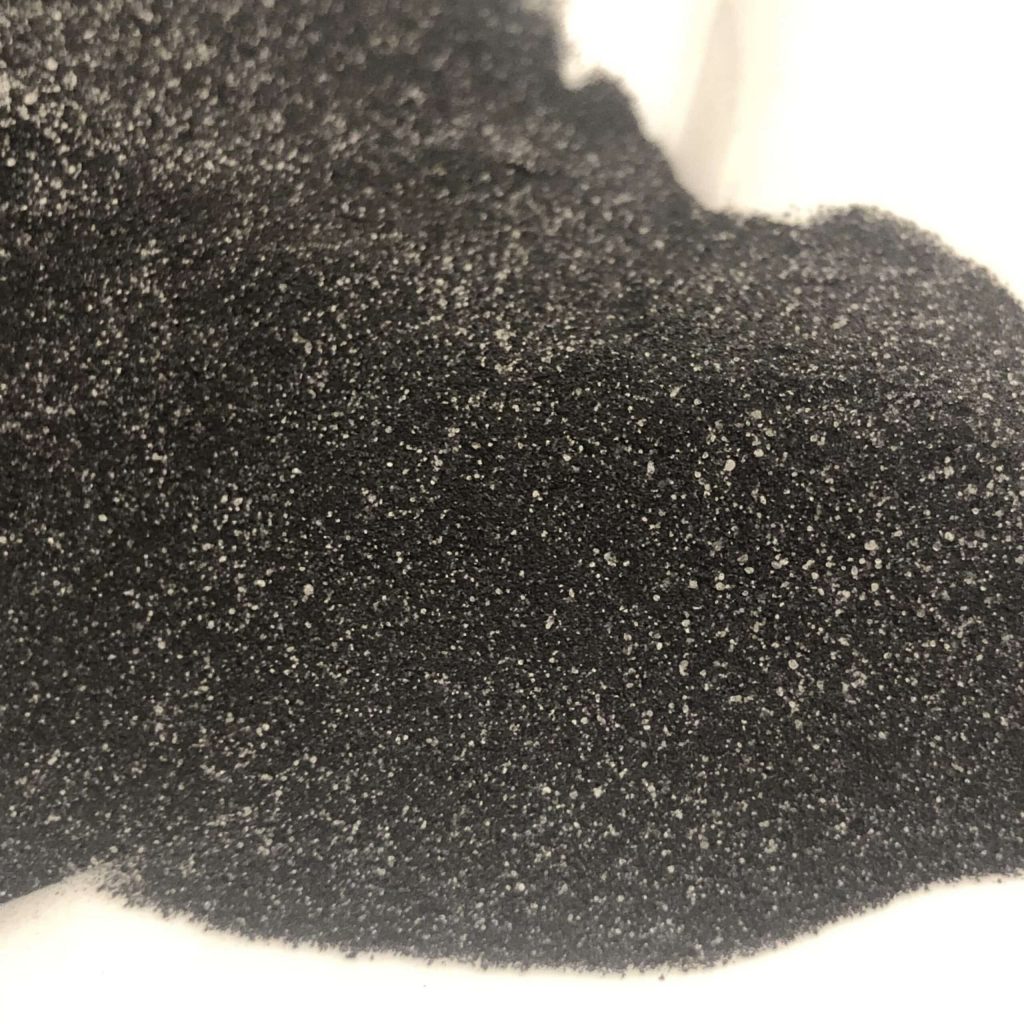
Should I install a water-conserving irrigation sprinkler system?
Today’s smart irrigation systems offer loads of functionality that can help you reduce water usage without sacrificing your lush green lawn to drought. These systems reduce wasted water by automatically cutting off water when it rains. They water during the best times to water so that you can reduce water evaporation. Be careful how you position sprinklers, however, so that you do not water the drive way or unlandscaped parts of your yard.
How can native plants help me conserve water in my landscape?
Native plants are plants that are conducive to your natural environment with their water saving properties. Install these plants in your landscape to improve drought tolerance and achieve a naturally beautiful yard.
What are some common ways to save water around the house?
Conserving water means tracking how much water you use. Then, you can reduce that usage with tips like:
- Installing a conservation-friendly lawn irrigation system and waterring at the proper times to reduce evaporation.
- Don’t let water run when brushing teeth.
- Don’t let the faucet run when washing dishes; wash in soapy water, turn off faucet, and rinse clean dishes all at once to save water.
- Only run your dishwasher when it’s full. You can also reduce your energy usage with this tip.
- Use a commercial car wash that has a water conservation plan.
- Add food wastes to your garbage disposal and run water at once instead of multiple times to improve water efficiency and conservation.
- Install backyard fountains that run on solar energy. Most importantly, select one that recycles water.
- Don’t water on windy days because the water won’t provide efficient penetration for turf areas.

